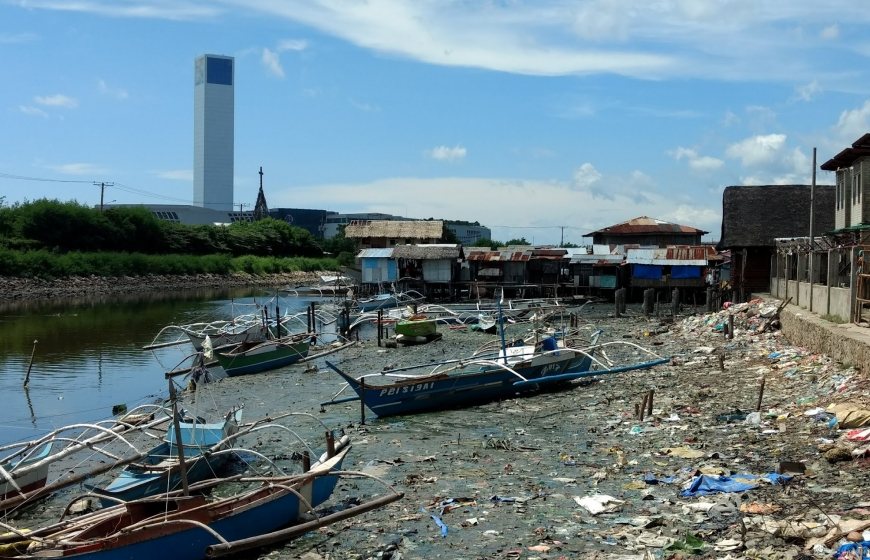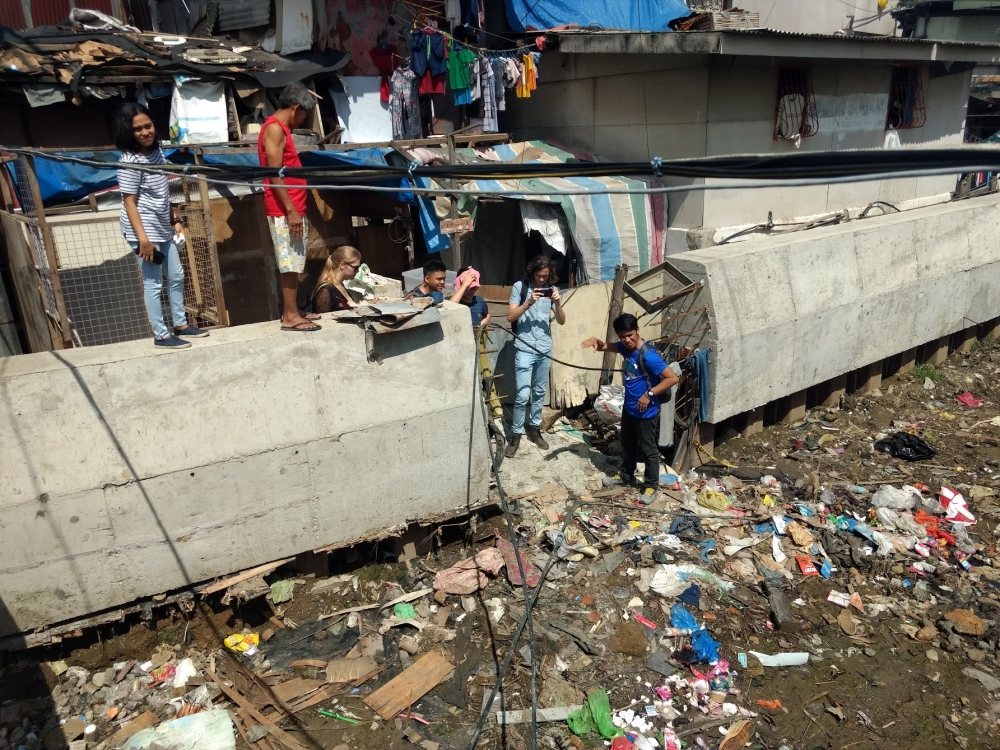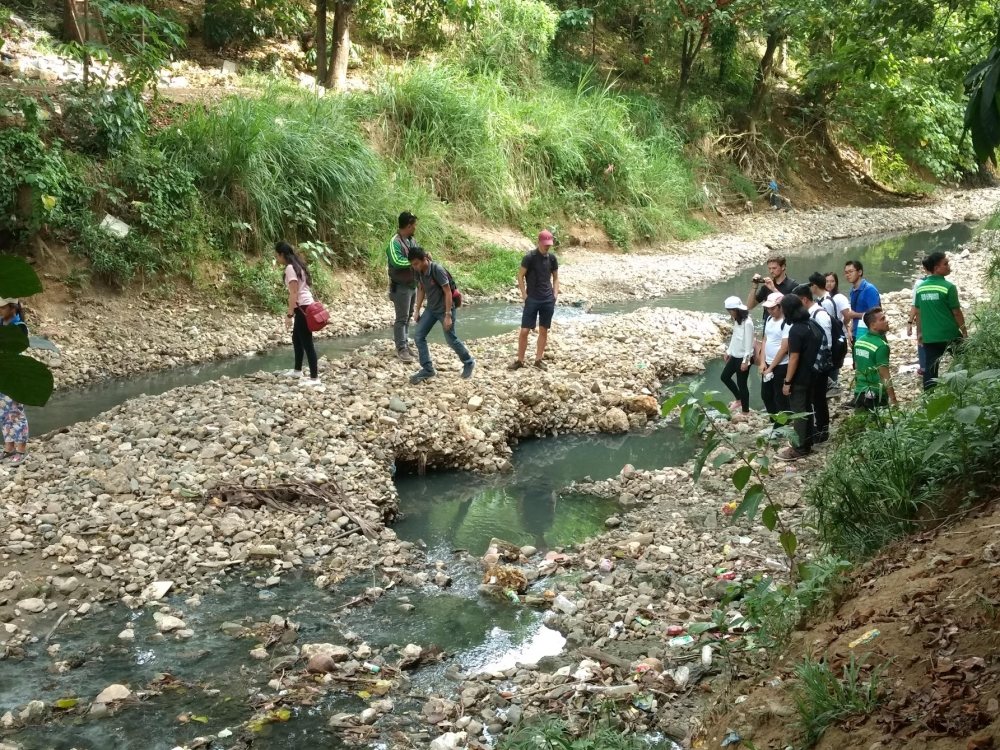
An initiative that connects students in the Netherlands with students in the Philippines is helping transfer Dutch expertise in engaging stakeholders in the clean-up of rivers, at the same time providing both sets of students with vital real-world experiences. The initiative brings in other stakeholders as well to help the students develop ideas on how to clean up river pollution, according to the initiative’s coordinator, Rick Heikoop.
The initiative is called the ClimateCafé Metro Cebu River Scan Challenge. Its coordinator is Rick Heikoop, a lecturer in Water Management at Rotterdam University of Applied Sciences. It is focused on Cebu City and the wider Metro Cebu metropolitan area, which has a population of around 3 million people. Heikoop's connections with the area – through marriage and his thesis research – led him to set up the connections. "Internationalisation is a very important part of the programme we provide. We set up collaborations in different parts of the world. In the Philippines, Metropolitan Cebu, with our partners there, is one of our favourites," he says.
As well as Rotterdam University of Applied Sciences, the River Scan Challenge brings together the University of San Carlos, based in Cebu City, Hanze University of Applied Sciences in the Netherlands, and Cebu Leads Foundation Inc, in partnership with Metro Cebu local government units.

The Metro Cebu region spans 5 cities. This year's edition was the 3rd ClimateCafé in Metro Cebu. Each edition focuses on a different location and rivers in the region; with this year covering the Mahiga, Butuanon, Guadalupe, and Bulacao Rivers.
ClimateCafé connects to the very real problems in the region. Heikoop notes that water pollution is already on the local governments' agenda, and that the drainage role of the rivers means there is an important connection to climate change. "There are a lot of informal settlers, a lack of proper sewage, and so, for many years cleaning up the rivers has been on the agenda – but the problem is complicated and it is hard to bring a solution," he says.
During the ClimateCafé, the students work intensively in mixed teams over a short period, to come up with innovative solutions. Importantly, they research the problems, do measurements and formulate potential solutions directly, and to do this, they connect with stakeholders, especially the local government and local residents. The first 2 challenges were carried out in person, but this year's edition in April had to be conducted online over 2 weeks, due to COVID-19.
The River Scan approach represents an open-source tool and it helps, for example, to introduce Dutch insights into best practice to the Philippines. It does this in a way that looks to adapt it to the local context – necessary when it comes to water.
"The students bring best practices from the Netherlands and other countries into the Philippines. Our students are familiar with best practices, and so can share those with local stakeholders," says Heikoop. "The students from the Philippines have local knowledge. Any solution will not duplicate the Dutch solution. It is really important to bring together best practices and local knowledge. The students find out for themselves that it is not easy to solve these problems, but they will have some ideas of what could be done," he continues, adding that the students bring their ideas together in a report and a film, and that a winning solution is selected.
River Scan also helps spread awareness of how to go about bringing stakeholders together to solve water problems. The River Scan is built on a proven approach, called the ClimateCafé, adapted to focus on river pollution.
Heikoop explains that there has been growing interest from the local governments, for example. "Three years ago, we started with one city and one river. Then we organised second one and more local governments were involved," he says. In the latest one, four local governments were involved, contributing to the online challenge. "They gave presentations and shared their data about river pollution," he continues, and hopes for even wider participation next year. "The whole concept is innovative and interesting for all stakeholders involved," he adds.
This stakeholder dimension is vital for water issues. "You cannot solve this problem with one stakeholder alone. You can only solve it if you work together with many different stakeholders," says Heikoop.

But the biggest value for River Scan is for the students who participate. "River Scan's most important aspect is creating awareness," says Heikoop. "Students learn a lot of things from books, but have not experienced those things – pollution of rivers, informal residences along rivers, and the complexity of the problems to clean up those rivers. When you are in an area, with stakeholders, you realise how complicated it is to solve these issues."
"These students will be graduating in 1 or 2 years, and these are the real-life problems that the world is facing. It is very important that these students can feel how complex it is to solve these issues. Then, if they use their creativity, they can come up with new ideas."
"I think this really is an innovative form of education. We work together with international students in mixed teams, so that they learn from each other and see how people from different cultures look at the same problem," says Heikoop. The students who took part in the second River Scan have just graduated, and Heikoop sees how much they valued the opportunity as part of their course. "I think, for every student, to them it is so exciting, new, and out-of-the-box… a life-changing experience."
Water safety and water security are major challenges for the Philippines. NWP has been supporting the Dutch water sector in their collaboration with Philippine counterparts to work on solutions for water safety and security. The ClimateCafé Metro Cebu River Scan Challenge also contributes to that.